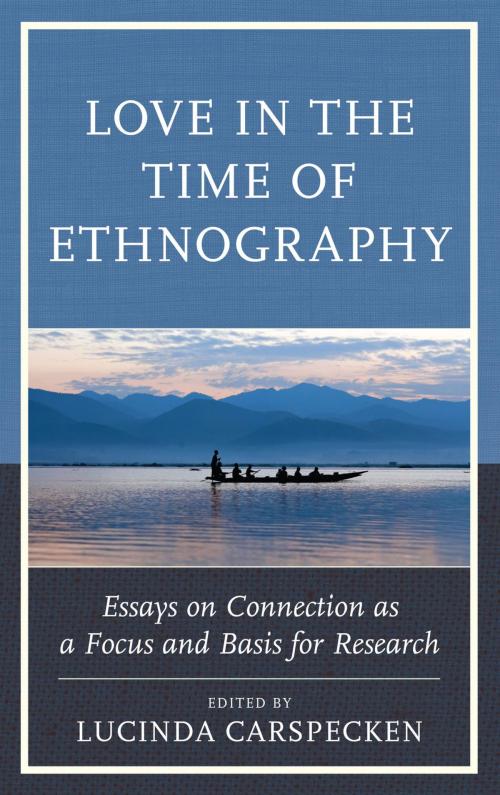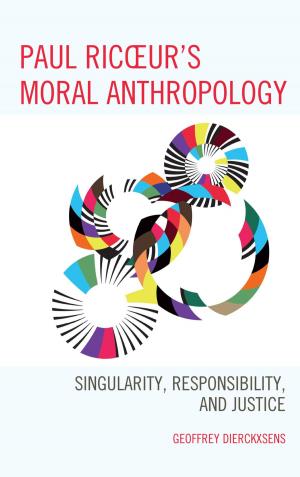Love in the Time of Ethnography
Essays on Connection as a Focus and Basis for Research
Nonfiction, Social & Cultural Studies, Social Science, Anthropology| Author: | Lucinda Carspecken, Phil Francis Carspecken, Jana Clark, Barbara Dennis, Adam Henze, Peiwei Li, Ian Skoggard, Leslie E. Sponsel, Frances Trix, Felipe Vargas, Michael Verde, Rachelle Winkle-Wagner | ISBN: | 9781498543187 |
| Publisher: | Lexington Books | Publication: | November 15, 2017 |
| Imprint: | Lexington Books | Language: | English |
| Author: | Lucinda Carspecken, Phil Francis Carspecken, Jana Clark, Barbara Dennis, Adam Henze, Peiwei Li, Ian Skoggard, Leslie E. Sponsel, Frances Trix, Felipe Vargas, Michael Verde, Rachelle Winkle-Wagner |
| ISBN: | 9781498543187 |
| Publisher: | Lexington Books |
| Publication: | November 15, 2017 |
| Imprint: | Lexington Books |
| Language: | English |
Love in the Time of Ethnography explores love – variously defined – as an important facet of human life and a worthy focus of study. The authors look at love in association with an Alevi and Sunni couple in Turkey, organizers of Mexican American and immigrant youth movements, Christian missionaries in China, an elderly man with dementia, two women “coming home” to queer identity, a White researcher working with Black women in the US, the common ground between Dōgen’s Zen teachings and Habermas's critical theory, an Albanian Sufi community in Michigan and interactions between humans and the natural world. It also includes theoretical writing on the place of love in social analysis, whether this involves relationships between researchers and participants or the nature of human connection itself. The authors argue that social research is an affective process as well as a cognitive one, and that fellow feeling is an essential component of making sense of the world.
Along with more traditional scholarly forms, the contributors to this book use auto-ethnography, life stories, archival research and poetry, noting that style itself conveys information and emotion. Writing is always to some extent partisan. While anthropologists and other social researchers have explored this idea over the last few decades, they have more often explored it with an eye to critique than to the ideals underlying that critique. This is a collection of essays about what ethnographers are aiming for as well as the problems they address, and the authors discuss ethical principles like agape, hizmet and cariño as rationales for ethnography and rationales for social change.
Love in the Time of Ethnography explores love – variously defined – as an important facet of human life and a worthy focus of study. The authors look at love in association with an Alevi and Sunni couple in Turkey, organizers of Mexican American and immigrant youth movements, Christian missionaries in China, an elderly man with dementia, two women “coming home” to queer identity, a White researcher working with Black women in the US, the common ground between Dōgen’s Zen teachings and Habermas's critical theory, an Albanian Sufi community in Michigan and interactions between humans and the natural world. It also includes theoretical writing on the place of love in social analysis, whether this involves relationships between researchers and participants or the nature of human connection itself. The authors argue that social research is an affective process as well as a cognitive one, and that fellow feeling is an essential component of making sense of the world.
Along with more traditional scholarly forms, the contributors to this book use auto-ethnography, life stories, archival research and poetry, noting that style itself conveys information and emotion. Writing is always to some extent partisan. While anthropologists and other social researchers have explored this idea over the last few decades, they have more often explored it with an eye to critique than to the ideals underlying that critique. This is a collection of essays about what ethnographers are aiming for as well as the problems they address, and the authors discuss ethical principles like agape, hizmet and cariño as rationales for ethnography and rationales for social change.















